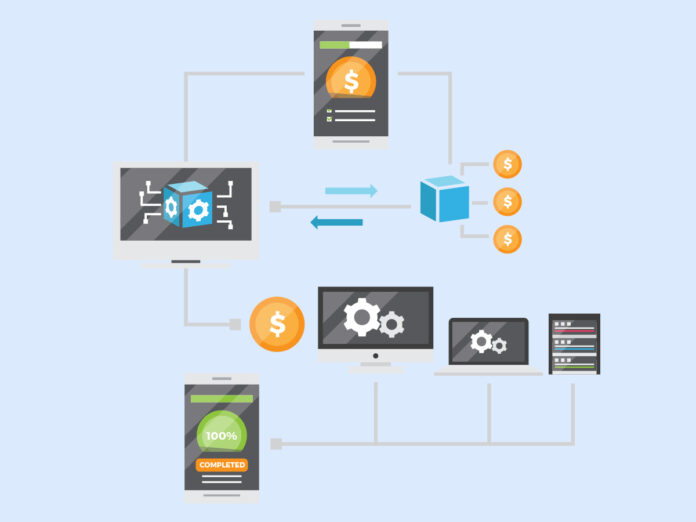Fintech Staff Writer
The rise of embedded finance platforms has revolutionized financial transactions by integrating banking, lending, and payment services directly into non-financial applications. These platforms enable businesses to offer seamless financial services to their customers without requiring them to interact with traditional banks. Within this ecosystem, smart routing and dynamic payment orchestration play a critical role in ensuring efficient, cost-effective, and reliable payment processing.
Understanding Smart Routing in Embedded Finance
Smart routing refers to the intelligent selection of payment pathways to optimize transaction success rates, reduce costs, and enhance user experience. Instead of directing payments through a single processor or gateway, smart routing dynamically selects the best available route based on factors such as:
- Transaction cost optimization – Different payment processors charge varying fees depending on factors like card type, transaction volume, and geography. Smart routing ensures that transactions are processed through the most cost-effective channel.
- Success rate improvement – Certain gateways may have higher success rates in specific regions or for particular card networks. Routing transactions through the best-performing gateway increases approval rates.
- Risk mitigation – By analyzing fraud risks in real-time, smart routing can redirect potentially high-risk transactions through more secure channels that have additional authentication or fraud-detection measures.
- Geographical optimization – Local payment processors often have better success rates and lower costs compared to international ones. Smart routing ensures transactions are processed via regionally optimized networks.
Read More on Fintech : The End of AI’s Wild West: How New Regulations Will Reshape Financial Services in 2025
In embedded finance platforms, smart routing ensures that businesses can offer a frictionless payment experience while reducing operational costs.
Dynamic Payment Orchestration in Embedded Finance
Dynamic payment orchestration extends beyond smart routing by managing multiple payment service providers (PSPs), acquirers, and banks in real time. It enables businesses to create a flexible, adaptive payment infrastructure that ensures seamless transactions regardless of market fluctuations, technical failures, or customer preferences.
Key components of dynamic payment orchestration include:
- Multi-Processor Connectivity
Payment orchestration platforms integrate multiple PSPs, ensuring that businesses are not reliant on a single provider. If one payment processor experiences downtime or declines a transaction, the system automatically reroutes the payment through an alternative processor.
- Intelligent Payment Routing and Failover Mechanisms
If a payment attempt fails due to network downtime, authorization issues, or gateway failures, dynamic orchestration ensures that the transaction is automatically retried using an alternative route. This increases transaction success rates while reducing lost revenue.
- Optimized Payment Flows for Cost Reduction
Certain processors offer better rates for specific transaction types. By dynamically selecting the most cost-effective option based on real-time data, businesses can minimize processing fees and maximize profit margins.
- Local and Alternative Payment Method Support
Embedded finance platforms cater to global audiences, making it essential to support local payment methods such as UPI in India, Alipay in China, and SEPA in Europe, alongside traditional credit and debit card payments. Dynamic orchestration ensures that customers can transact using their preferred payment method, enhancing conversion rates.
- Fraud Detection and Risk Management
AI-powered fraud detection mechanisms assess transactions in real time, flagging suspicious activities and applying additional authentication steps when necessary. By dynamically adapting risk management strategies, embedded finance platforms enhance security without causing unnecessary transaction declines.
Benefits of Smart Routing and Dynamic Payment Orchestration in Embedded Finance
- Increased Transaction Success Rates
By leveraging smart routing and orchestration, businesses can ensure higher payment approval rates, reducing lost revenue due to transaction failures.
- Cost Optimization and Reduced Fees
Dynamic orchestration reduces payment processing costs by selecting the most cost-effective transaction pathways, ensuring businesses pay lower fees while maintaining reliability.
- Enhanced Customer Experience
Seamless and frictionless transactions improve customer satisfaction and retention, reducing cart abandonment rates and boosting sales.
- Business Continuity and Resilience
Reliance on a single payment provider can be risky. Orchestration provides redundancy, ensuring uninterrupted payment processing even if a particular gateway experiences downtime.
- Global Expansion and Market Penetration
With support for local and alternative payment methods, embedded finance platforms can cater to a diverse customer base across different geographies, enabling businesses to scale globally.
Future Trends in Smart Routing and Payment Orchestration
As embedded finance continues to evolve, several trends will shape the future of smart routing and dynamic payment orchestration:
- AI and Machine Learning for Enhanced Routing – AI-driven analytics will further refine routing decisions, optimizing transaction approval rates and reducing fraud.
- Blockchain and Decentralized Payments – Embedded finance platforms may incorporate blockchain-based smart contracts for secure, transparent payment routing.
- Embedded Buy Now, Pay Later (BNPL) Solutions – Dynamic orchestration will integrate BNPL options within payment flows, offering consumers greater payment flexibility.
- Greater Regulatory Compliance – As financial regulations become stricter, orchestration platforms will incorporate compliance automation, ensuring adherence to global standards such as PSD2, PCI-DSS, and GDPR.
Smart routing and dynamic payment orchestration are essential components of modern embedded finance platforms, enabling businesses to optimize payment processing, reduce costs, and enhance customer experience.
Catch more Fintech Insights : AI is Making Accounting and Finance Faster, Smarter and More Valuable
[To share your insights with us, please write to psen@itechseries.com ]
